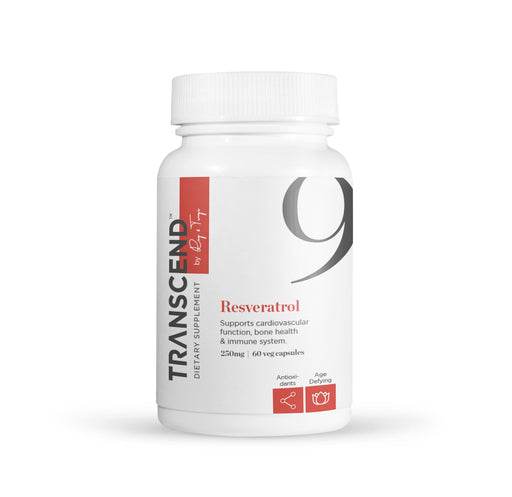
Vitamin B-12, Sublingual
Increased energy Improve mood Fight fatigue Common deficiency Better absorption Vitamin B12 (also called cobalamin) is one of eight water-solu...
View full details
Finding balance in our lives can be hard, especially today. We are urged to strive for more in our work, relationships, workouts, and wealth. The pressure to be ultra-productive, accomplished, and happy is magnified by unrealistic standards perpetuated by social media. Meanwhile, just as the Covid pandemic seems to be retreating, the news of Russia's invasion of Ukraine has dramatically intensified. First the pandemic and now the war have created an extreme sense of urgency around information. We check our news feeds for up-to-the-minute updates, day and night. We take our phones to bed with us, set up notifications, and constantly swipe to refresh our feeds. Bad news has become ubiquitous and ever-present.
Studies show that seeing upsetting news leads people to seek out more information on the topic, creating a self-perpetuating cycle. There is actually a term for this -- doomscrolling -- when we spend an excessive amount of screen time devoted to seeking out and reading negative news. Meanwhile, news isn’t what it used to be. We aren't tuning in to watch one trusted authority, reading headlines from a chair in a studio. We are witnessing news in real time, directly from the source, with graphic video.
Historically it has been important for our survival to pay attention to potential challenges. Our ancestors learned to focus on the rustling in the leaves because it might be a predator. It made sense to turn our attention toward the threat and away from mundane and even good news that was slowly developing over time. It is human nature to tune into negative threats. So, when we have access to graphic footage of perceived threats around the clock, it can be a problem.
Ray Kurzweil writes, “A modern version of a predator hiding in the foliage is the phenomenon of people continually monitoring their information sources, including social media, for developments that might imperil them. We want to know if and when we are in danger.” A growing body of research shows that constant consumption of negative news increases our anxiety, irritability, and overall mood. This in turn contributes to decreased immune system function, gastrointestinal disorders, Type 2 Diabetes, cancer, rheumatoid arthritis, heart disease, stroke, and ultimately accelerates the aging process. (TRANSCEND: Nine Steps To Living Well Forever).
Yet, the news is something we can’t live without. Having access to information is essential and can increase empathy and action for good. So, we are faced with a challenge.
In a 24-hour news cycle, how can we stay informed and engaged while protecting our mental health?
-Pause, breath, and notice: The first step to creating balance is to pause and notice how you are feeling. When we see our habits and patterns as they are, without immediately placing judgement on them, we can make informed and positive adjustments over time. This may seem obvious, but in our busy lives, moments of reflection can be fleeting. Take a few deep breaths and notice the sensations that your mind and body are experiencing. There are many helpful breathing techniques to relax your body and mind. Try to make this a routine by carving out regular times that work for you. Set reminders on your phone to prompt and support you. If you find that you are feeling anxious, take a break from the news.
-Streamline news consumption by picking one or two balanced sources and sticking to them. There is no need to watch redundant news. Once you’ve picked your preferred sources, you can remove all of the extra “noise” from your social media feed by muting and hiding posts that repeat or sensationalize what you already know.
-Limit news consumption by picking a certain number of times throughout the day to check for updates. Stick to them. Perhaps check once in the morning and once in the late afternoon or early evening.
-Avoid watching, reading, and listening to the news right before you go to bed. Instead, make bedtime a relaxing transition that you can look forward to every night. Read a book, listen to relaxing music, drink herbal tea, turn down the lights, turn off your devices. Different things relax different people, so figure out what calms you and practice it before bed.
-Download an app to track and control how much time you spend on social media.
-Make a list of activities to do when you are feeling the pull of the news. Post it in a visible place and save it on your phone. They can be simple things like taking a walk, calling or texting a friend, going outside for a breath of fresh air, watering your plants. Whatever you want! Having a cheat sheet of activities will make it easier to shift your focus away from doomscrolling toward something else.
-Find simple ways to engage and take action. This applies to any issue that is important to you. Today, as the crisis in Ukraine unfolds, we are including two related resources. Global Citizen, a nonprofit committed to ending extreme poverty by 2030, has compiled a list of 26 meaningful ways you can help. Another nonprofit, World Central Kitchen, has launched restaurants in Ukraine and four surrounding countries serving hundreds of thousands of meals to families in need. They welcome donations, volunteers, and trainees. Their founder, Jose Andres, writes, “You’d be amazed at the power of a plate of food. It can change the world, and so can you.”

Increased energy Improve mood Fight fatigue Common deficiency Better absorption Vitamin B12 (also called cobalamin) is one of eight water-solu...
View full details
Combat internal aging Protect cells from radiation damage Increase antioxidant capacity Take with lecithin for better absorption Optimal dose for...
View full details
2022 update: Future batches of this product will use a Ubiquinol product that is a greenish capsule rather than a red softgel Bioavailable form o...
View full details
2022 update: to maintain the same dose of Phosphatidylcholine you are accustomed to, we are moving back to the 420mg in 2 softgels! 2022 update: ...
View full details